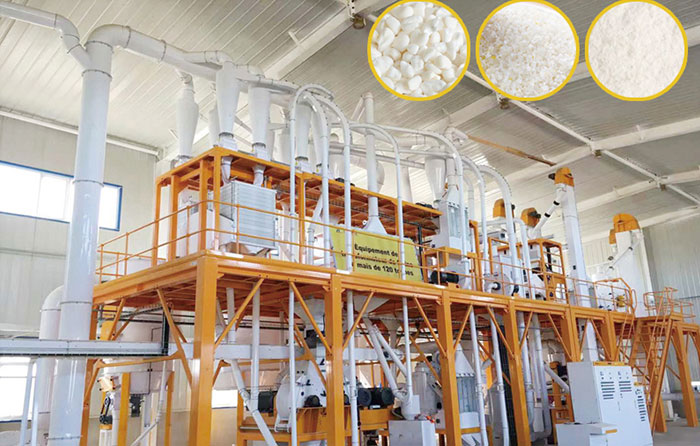Welcome to our comprehensive guide on maize flour milling plants. In this article, we, as industry-leading experts in maize flour milling, will take you on a detailed journey through the intricacies of a maize flour milling plant, its process flow, and the key factors that contribute to efficient production. Our mission is to provide you with invaluable insights and knowledge, so you can better understand the maize flour milling process and make informed decisions for your milling operations.

A maize flour milling plant is a crucial facility in the food processing industry, responsible for transforming maize kernels into finely ground maize flour, also known as cornmeal. This flour serves as a staple food for millions of people worldwide, making the milling process a significant part of global food production.
The maize flour milling process commences with the thorough cleaning and conditioning of the maize kernels. During this initial stage, the maize undergoes a series of cleaning steps to remove impurities, such as stones, sticks, dust, and other foreign materials. The objective is to ensure that only the highest quality maize enters the milling process, resulting in premium-grade flour.
Following the cleaning process, the maize is conditioned, which involves adding moisture to achieve the desired moisture content. Proper conditioning is essential for optimal milling efficiency and higher flour extraction rates.
Once the maize kernels are cleaned and conditioned, they are directed to the degerminator. Degermination is a critical step in the milling process, as it involves the removal of the germ (embryo) from the maize kernel. By eliminating the germ, the flour's shelf life is extended, and its susceptibility to spoilage is reduced.
The milling process is the heart of the maize flour milling plant, where the maize kernels are transformed into fine flour. There are various milling methods employed in the industry, each with its unique advantages. The primary milling methods include:
This method employs a series of rollers to crush the maize kernels, effectively separating the endosperm from the bran and germ. The endosperm is then ground into the desired fine flour.
In hammer milling, hammers are used to pulverize the maize kernels into particles. The resulting particles are sifted to obtain the desired flour size.
Plate mills use a set of grinding plates to crush the maize kernels, producing flour with the desired fineness.
After the milling process, the flour undergoes sifting and classification to separate it from any remaining bran and germ particles. Sifters and classifiers are utilized to obtain different grades of flour, catering to various culinary and industrial needs.
In some regions, maize flour is fortified with essential nutrients such as iron and vitamins to address nutritional deficiencies. Fortification enhances the flour's nutritional value, making it more beneficial for consumers. After fortification, the flour is meticulously packaged into various-sized bags for distribution and sale.
Efficiency is paramount in maize flour milling machine, as it directly impacts productivity and profitability. To achieve efficient production, consider the following key factors:
Invest in modern milling equipment and machinery to maximize efficiency and minimize downtime.
Implement automation and advanced control systems to optimize milling operations and reduce human errors.
Schedule regular maintenance for milling equipment to ensure smooth operations and prevent unexpected breakdowns.
Hire and train a skilled workforce capable of operating and maintaining milling machinery effectively.
Implement stringent quality control measures to maintain consistent flour quality and meet industry standards.
Adopt energy-efficient practices to reduce operational costs and environmental impact.
Maize flour milling plants play a pivotal role in global food production, providing essential maize flour for millions. Understanding the process flow and factors contributing to efficient production is essential for millers aiming to excel in the industry. By investing in advanced machinery, automation, skilled personnel, and quality control, maize flour milling plants can unlock the secrets of efficient production, ensuring a steady supply of high-quality maize flour to meet the world's dietary needs.
Copyright:@2020-2021
Comments Please sign in or sign up to post.
0
0 of 500 characters used